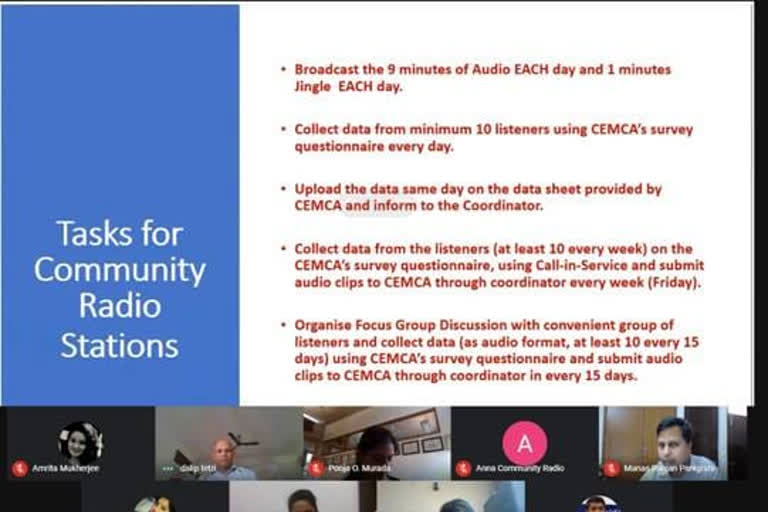New Delhi: India is working on its fifth science policy and for the first time, India is recording the voice of the voiceless through community radio for the formulation of a science and technology policy.
The process of formulation of Science Technology and Innovation Policy (STIP)-2020 has been initiated by the Department of Science and Technology (DST) along with the Office of Principal Scientific Advisor (PSA), Government of India focusing on decentralization of policy design by making it a bottom-up and inclusive process.
The policy formulation process, based on four interlinked tracks covering cover nearly 15,000 stakeholders, also involves the inclusion of inputs through community radio.
Accordingly, the National Council for Science and Technology Communication (NCSTC), DST, has devised a unique way to capture the inputs of people for S&T through the involvement of Community Radio Stations (CRS).
Out of 291 Community Radio Stations (CRS) across the country, 25 CRS has been identified based on regional diversity, gender, and outreach capability. The process is being implemented through the Commonwealth Educational Media Centre for Asia (CEMCA) for capacity building and handholding.
Audio content on the policy developed by DST is being broadcast in 13 Indian languages along with an interesting jingle through identified CRS from 1st August 2020, and this broadcast will continue till 30th September 2020. The data from these stations will be collected in several formats for inclusion in STIP 2020. Focus Group Discussion (FGD) with the community representatives have already started.
This policy aims to realign priorities of the STI ecosystem as per the need of diverse scientific sectors, and the people-centric approach thus would align it with the changing aspirations of society for holistic socio-economic development of the nation. A participatory model with four interconnected tracks has been adopted to formulate this policy to capture the fundamental ethos of participatory democracy.
“The policy on science, technology, and innovation would greatly gain by the insights from the grass-roots in the identification of the relevant problems and the processes required for effectively addressing them,” said Prof Ashutosh Sharma, Secretary, DST.
Also read: Two dead, three injured as trucks catch fire in Madhya Pradesh



